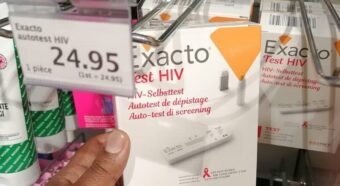African Countries hold CBLN meetings across the continent
- August 27, 2018
- Non classé
- By Armelle Nyobe
With the Global Fund committee meetings that happened at the end of June and early July 2018, the month of June was a relatively busy month for the ACB. Critical to Africa’s representation in Global Fund committee and board meetings, are the consultative processes that need to happen to generate African consensus over policy issues. The CBLN meetings in June were all about that – a sure way of getting the African position on global fund policy issues. The critical discussion issue was the Global Fund’s 2020-2022 Grant Allocation Methodology.
The meetings were held between June 18-28 2018. The southern cluster met in Johannesburg on 18-19 June, the East African cluster met in Kampala on 21-22 June while the West and Central African clusters had a combined meeting in Dakar on 28-29 June. The meetings that received technical support from UNAIDS drew participants from CCMs, government ministries and CSOs in the respective regions. The meeting in Kampala also included delegates from other Global Fund voting constituencies, that is, from the Developing Country NGOs and the Communities.

The delegates to the meetings deliberated over a number of key policy issues that were already under discussion in Global Fund Board and committees but also others that were envisaged to become critical issues. Prominent among the policy issues discussed was the grant allocation methodology. Groups delved into the issue discussing how the current allocation methodology has worked and also explored needed improvements. Generally, participants agreed with the Global Fund secretariat that the current allocation methodology has performed well as it has ensured that Global Fund resources are increasingly aligned with disease burden and also incentivized countries to invest in key catalytic thematic areas such as AGYW, KPs, and RSSH components. They were also happy with the current disease split of 50% HIV, 32% Malaria and 18% Tuberculosis. However, participants also felt that the qualitative adjustments needed refinements to ensure the allocations responded to issues of the HIV prevention crisis with some countries registering higher new infections in 2017, TB missing cases and malaria resurgence in Africa. Additionally, considering that the next allocation cycle may not likely benefit from unutilized 2017-2019 funds its critical that the 6th replenishment yielded more funds beyond the 5th replenishment’s $10.3bn.
Other policy issues discussed during the CBLN meetings included CCM evolution, emphasizing that the Global Fund should ensure CCMs’ strategic reposition by aligning them to national systems and also begin to explore the future of CCMs in the 2020-2022 allocation cycle. Participants also felt that rather than waiting until completion of the pilot CCM evolution phase, the Global Fund should ensure that lessons being learned are being shared broadly in real time. This will enhance quick uptake of best practices.
The value of CBLN deliberations continue to be greatly appreciated across the African region. Prof. Pascal Niamba – Alternate Board member for WCA constituency – urged the Dakar meeting participants to bring their collective wisdom to bear on decisions being made by the Global Fund by actively participating in the meetings. Similar sentiments were made by Prof. Doudou Ba – the outgoing CCM chairperson for Senegal – during his official opening remarks at the Dakar meeting. He implored participants to ensure West and Central African stakeholders actively participated in shaping Global Fund policies, especially given that WCA region needed to catch-up with respect to the HIV epidemic control targets and also the pressing issues of TB missing cases and the malaria resurgence in Nigeria and Congo DR. Speaking at the Kampala meeting, Uganda CCM chairperson Prof. Edward Kirumira urged the meeting delegates to critically look at the issues under discussion as this was a unique opportunity for countries to influence Global Fund decisions and ensure Africa’s voice was heard. Berry Nibogora, a delegate representing the Developing Country NGOs constituency at the Kampala meeting, appreciated the ACB’s gesture of inviting other ImG members to these meetings as they are important to ensure cross pollination of ideas and, importantly, to ensure ImG members begin early to build consensus on policy issues of common interests in line with the ImG roadmap. He urged the ACB to continue inviting other ImG members to these meetings as his experience of attending the meeting enriched his constituency’s appreciation of the African constituencies’ positions.
5.jpeg)
The CBLN meetings remain an important platform for countries to share information and best practices, learn from each other and inform Global Fund policies and governance deliberations in a bottom-up approach. The meetings were an opportunity for countries to begin to collectively think around the grant allocation methodology, a key Global Fund policy issue that will be the focus of the next few committee and Board meetings to be decided on in the 41st Board meeting in May 2019. These meetings have proved to be a critical platform for digesting policy issues, generating Africa-wide consensus and mandating African Board and committee representatives with specific African positions. Nicholas Niwagaba, a delegate at the Kampala meeting representing the Communities delegation, found the Kampala meeting of great value:
“These cluster meetings also helped us as East African to share best practices and lessons learnt in implementation of the GF grants which open our minds to new innovative ideas. We also got an opportunity to give feedback to the CBLN leadership on how best to operationalize CBLNs to ensure they are strong building blocks for meaningful bottom-up participation in the Global Fund policy making cycle”.

The ACB will in September launch the first ever virtual CBLN meetings which will be a learning opportunity on how the virtual platforms could be employed for CBLN deliberations. The actual dates and specifics of the discussions will be communicated to countries in due course. The ACB wishes to thank South African National AIDS Council (SANAC), the AIDS Healthcare Foundation – Africa Bureau and the CCM-Senegal for their excellent logistic support to ensure successful hosting of the three meetings. We also thank GiZ for funding the deliberations.


